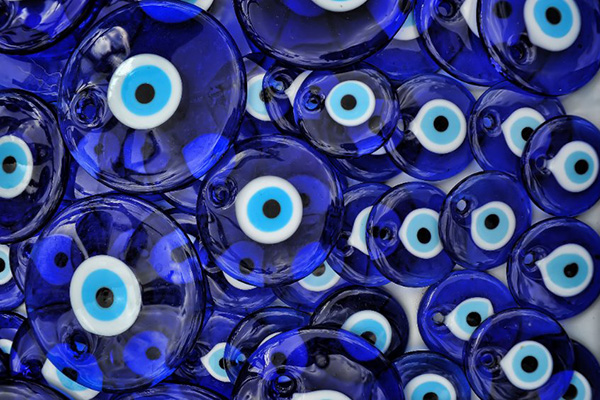We Should Be More Like The Turtle
 Most people seldom give themselves permission to take a breather and just relax. As a hypnotherapist, I often see clients for stress relief sessions. In this case, they usually feel it is more justified for them to take some time out, because they are paying for a form of professional healthcare. After all, they made an appointment for the session and their doctor referred them. So, it must be okay.
Most people seldom give themselves permission to take a breather and just relax. As a hypnotherapist, I often see clients for stress relief sessions. In this case, they usually feel it is more justified for them to take some time out, because they are paying for a form of professional healthcare. After all, they made an appointment for the session and their doctor referred them. So, it must be okay.
Many people cannot even relax on a vacation! They feel they absolutely must do all the tourist things, even if they are tired, or the money they spent of the trip will be wasted. Or they feel compelled to spring clean the hotel room, instead of lying on the beach. Only to feel they need a second vacation to recover from the first vacation once they return home.
In the good old days, folks used to simply take a ‘joy ride’ somewhere with no real purpose or destination in mind. They did it purely for the enjoyment and the adventure. It was a standing joke in my family that if you chose to get in a car with my dad, you had better have the entire day off, because you never knew where you would wind up or what time you would get back home.
My kids still reminisce about our family taking a ride during the holidays to see all the Christmas lights and decorated homes. We used to stop for hot chocolate with marshmallows and everyone received a homemade cinnamon candy cane. It was the tradition.
Today, we live in such a busy, fast-paced world in which we feel guilty for taking time to take care of ourselves. But what is more important: the journey or destination? We all need to rest and restore our body, mind, and spirit on a regular basis. Neglecting one’s self-care is a prescription for poor long-term health, and making bad life choices.
Hope Is A Spiritual Superpower
 My oldest granddaughter told me on New Years’ Eve that one of her favorite things in life is hope. I then asked her what the word really means to her? She explained that it was very comforting to imagine the new year being better than the past year.
My oldest granddaughter told me on New Years’ Eve that one of her favorite things in life is hope. I then asked her what the word really means to her? She explained that it was very comforting to imagine the new year being better than the past year.
She said hope is what motivates her to try new things and be the best she can be. With every bit of motivation there is always an underlying sense of hope. Hope that things will indeed work out for the better and that it is possible to achieve your goals.
I agreed with her that hope gives people the incentive to really go for what they want in life and strive towards goals that they might not otherwise believe possible to achieve. It gives people the courage to take chances in life that may catapult them into a better life.
But I also introduced her the wisdom of Dusty Springfield’s popular song, Wishing and Hoping.
Wishin’ and hopin’ and thinkin’ and prayin’
Plannin’ and dreamin’ each night of his charms
That won’t get you into his arms
So, if you’re lookin’ to find love you can share
All you gotta do is hold him, and kiss him and love him
And show him that you care.
Dusty understood that wishing and hoping is all good and nice – but without real action to set things in motion we may be wishing and hoping for a very, very long time! Don’t get me wrong, hope is a feeling that as a professional psychic medium I want every client to leave my office with in their heart and mind. Knowing that they have much to look forward to and that anything is possible in their life.
Spirit Will Guide You Through Life’s Murkiest Fog
 This time of year, I am usually way too busy to spend much time relaxing on my porch, but today, I just felt it was high time for some ‘me time.’ Yes, psychics and mediums tend to be great at giving guidance to others about the necessity for taking some ‘me time,’ but not so good about following our own advice.
This time of year, I am usually way too busy to spend much time relaxing on my porch, but today, I just felt it was high time for some ‘me time.’ Yes, psychics and mediums tend to be great at giving guidance to others about the necessity for taking some ‘me time,’ but not so good about following our own advice.
It is always so calm and peaceful to just rock away in my favorite chair on the porch, feeling the energy of the ocean. It is a wonderful time for me to meditate and connect with my spirit guides and loved ones in spirit.
Looking out over the ocean, I observed some ‘sea smoke’ over the water. Sea smoke, also known as ‘frost smoke’ or ‘steam fog,’ is a type of fog that arises when extremely cold air moves over warmer water.
The sea smoke can become so dense that it is impossible for sailors to clearly see all the boats and yachts on their moorings. This is when one hears the tugboat’s foghorn guiding the big tankers safely to their destination. Although it is a strange, eerie sound, it is also reassuring to know the boats can find their way through the sea smoke.
As I came out of meditation, I noticed the sea smoke had finally started to lift. I could now see the red tugboats and the sun was peeking through the clouds. It looked like a slice of heaven to me.
Then the thought came to me how symbolic this beautiful sight was of life’s challenges and how we can overcome adversity more easily with the support and guidance of spirit.
Free Yourself From The Fear Of Rejection
 A close friend and college, who is also a psychic medium, had a blind date set up by a friend a while ago. “I think the two of you would hit it off,” the match-making friend promised. Well, my friend and the mystery man initially texted for a couple of weeks and then decided to meet in person.
A close friend and college, who is also a psychic medium, had a blind date set up by a friend a while ago. “I think the two of you would hit it off,” the match-making friend promised. Well, my friend and the mystery man initially texted for a couple of weeks and then decided to meet in person.
Due to Covid-19 recommendations at the time, they arranged to meet outside and ended up going for a three hour walk. The date went great! When it was time to part, the gentleman said he hoped they can meet again soon. He clearly seemed to like her a lot.
She agreed as they both seemed to enjoy each other’s company, but on the way home, her old fear of rejection resurfaced. She called me the next day to tell me how it went.
The first thing she said was that he seemed a great person. It was the first time, in a long time, that she had such a good time. But I could sense that something was not quite right. So, I asked her what was the matter?
“I think he is out of my league,” she bluntly said.
“What do you mean,” I exclaimed in surprise.
“Well, he arrived in a brand-new luxury car, while mine is an old jalopy! He is a medical professional, and I just do readings. I am also not smart enough, or pretty enough for a guy like him. My middle-aged body is certainly not what it used to be.
Seeing Spirit Signs In Ordinary Things
 Seeing see spirit signs and meaningful symbols in ordinary things is a common phenomenon among the spiritually aware. One way that many of us see such signs is by observing meaningful shapes or patterns in ordinary things.
Seeing see spirit signs and meaningful symbols in ordinary things is a common phenomenon among the spiritually aware. One way that many of us see such signs is by observing meaningful shapes or patterns in ordinary things.
As a child, while having breakfast, I would often see faces or animals in my eggs or oatmeal. I never gave it a second thought that other kids might not see what I did. It even became a game for me to count how many things I could see. And to this day, my morning cup of coffee or tea with cream often produces all sorts of wonderful shapes for my amusement.
In the fourth grade, while eating lunch at school one day, I asked the kids around me if anyone else also saw faces in their food. Two kids said yes, but most said they did not. The three of us who did see faces agreed to see how many more things we could see in this way, and report back our discoveries to each other. It created a special bond between us that lasted throughout our school years. To this day we still sometimes compare notes.
My sister and I also created a game of face counting while taking long car rides with our parents. We were only allowed to count the faces and animals we spotted on our side of the car. Once we reached our destination, the one with the highest count received a prize, which was usually a small trinket from the local department store.
Even my older sister, who does not believe in much that cannot be scientifically verified, sees chariots in the sky. To this day, at age 78, she will say, “Look! Do you see the chariots and horses in the clouds?’ Much to my chagrin, I have never been able to see it myself.
The Self-Fulfilling Fear Of A ‘Bad Luck Curse’
 Some folks who consult with reputable psychics for the first time sometimes believe that the many unfortunate things that have been happening to them is due to some ‘family curse’ or ‘bad luck hex.’ While it may indeed seem like certain people and their families do have more than their fair share of ill-fated things happen to them, sometimes through several generations, this kind of superstition is usually just an overreaction to challenging life events, and too often merely an excuse to avoid personal responsibility for one’s own choices.
Some folks who consult with reputable psychics for the first time sometimes believe that the many unfortunate things that have been happening to them is due to some ‘family curse’ or ‘bad luck hex.’ While it may indeed seem like certain people and their families do have more than their fair share of ill-fated things happen to them, sometimes through several generations, this kind of superstition is usually just an overreaction to challenging life events, and too often merely an excuse to avoid personal responsibility for one’s own choices.
An famous example of a so-called family curse is the Kennedy family, who suffered a series of bizarre accidents, premature deaths, assassinations, and various other setbacks and calamities, including several ill-fated romantic relationships that all started out great, but then took a turn for the worse and ended in tragedy and disaster.
Whenever I read for a client who believes they are somehow ‘cursed,’ I always advise them that blaming a so-called ‘curse’ for the challenges and adversities in their life will never solve their problems, nor help them create a better life in the future.
Sometimes people are not ready and open to take an honest look at their own part in creating certain life events through their free will choices and decisions. When a relationship ends badly, for example, it is so much easier and convenient to simply imagine, “Oh, well I am probably cursed in the love department.” Meanwhile, the red flags for this relationship were waving high and bright since the very beginning, but they so desperately wanted a relationship that they ignored the early warning signs.
If we would only listen to our gut, and to the people who truly care about us, we will more often experience the blessing of good fortune, instead of ‘bad luck.’ Spirit always warns us early on when we are making bad life choices and heading for disaster. Some of these messages come courtesy of our intuition and inner guidance, some are revealed to us in dreams, signs, synchronicities and psychic readings, and some warnings reach us through our friends and relatives. Sadly, some people blame everything instead on ‘bad luck’ or ‘curses,’ as they would rather believe they have been cursed than take any personal responsibility by accepting they made a poor choices or decisions.

